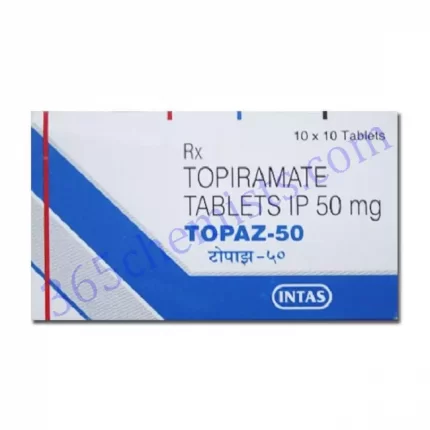Introduction
A medication known as Levesam 250mg Tablet includes the active component Levetiracetam within its formulation. In the treatment of epilepsy, it is frequently employed to assist in the management of seizures. Antiepileptic or anticonvulsant drugs, such as levetiracetam, are included in the group of medications known as antiepileptics. It does this by bringing the electrical activity in the brain back into balance, which in turn reduces both the frequency and severity of seizures. Tablets of Levesam 250mg are available to be taken orally and should be consumed in accordance with the instructions provided by a medical professional.
Dosage and Administration
It is possible for the recommended dosage of Levesam 250mg Tablet to change depending on the age of the patient, their weight, and the nature of the condition that is being treated. It is critical to ensure that the prescribed dosage instructions provided by the medical professional are adhered to at all times. The tablet should be taken with a full glass of water and should be swallowed whole; it can be taken either with or without food. It is recommended that the medication be taken at the same time(s) each day in order to keep the levels of the medication in the body consistent.
Safety and Precautions
Before beginning treatment with Levesam 250mg Tablet, it is essential to communicate any preexisting medical conditions, allergies, or medications that are currently being taken to the healthcare professional. This includes both medications that require a prescription and those that can be purchased without one, as well as herbal supplements. The appropriateness of the Levesam 250mg Tablet for a patient’s condition or the appropriate dosage may be impacted by interactions with other medications.
Related Product
Levesam 1gm Tablet
Levesam 250mg Tablet
Levesam 500mg Tablet
Levesam 750mgTablet
Levesam XR 1gm Tablet
Levesam XR 500mg Tablet
Potential Side Effects
Levesam 250mg Tablet, like any other medication, has the potential to cause adverse effects in some people. Drowsiness, lightheadedness, headaches, changes in appetite or mood, and fatigue are examples of common adverse effects that may occur. These negative effects are typically mild and temporary, but it is essential to speak with a medical professional if they continue or become worse after taking the medication.
Even though they are uncommon, serious adverse effects have been linked to the use of Levesam 250 mg Tablet. Some of these may include symptoms of an allergic reaction, such as a rash, severe itching, swelling, severe dizziness, or difficulty breathing. In the event that any severe or lingering adverse effects are experienced, it is imperative to seek medical attention as soon as possible.
Precautions and Interactions
- When utilising the Levesam 250mg Tablet, certain safety measures ought to be observed. It is important to avoid activities that require mental alertness, such as driving or operating heavy machinery, until it is known how the individual will respond to the medication. Since it may cause drowsiness or dizziness, it is important to avoid these activities. Avoiding alcohol consumption is also recommended because it may amplify the effects of the drug.
- There is a possibility of adverse interactions between the Levesam 250mg Tablet and other medications, including some antacids and antiepileptic drugs. It is imperative that the healthcare professional be informed of all medications that are being taken in order to reduce the likelihood of the occurrence of possible drug interactions.
Obtainability as well as Storage - The Levesam 250mg Tablet can be purchased at local pharmacies, and it is recommended that it be kept in a cool, dry place that is shielded from both moisture and direct sunlight. Put the medication in a secure location that is out of the reach of both children and animals to avoid any accidental consumption.
Important Considerations
It is essential to take the medication exactly as directed by the healthcare professional, both in terms of the dosage that is prescribed and the amount of time that the treatment is to be taken. The risk of seizures or other complications may be increased if the medication is stopped suddenly or if the dosage is altered without the supervision of a medical professional. In the event that a dose is skipped, it ought to be administered as soon as it is recalled. However, if the time between missed doses is getting close, it is best to just skip the dose that was missed and get back on track with the regular dosing schedule.
Special Populations
Individuals who have kidney problems should exercise extreme caution when using the Levesam 250mg Tablet because dose adjustments may be required. The individual’s renal function will be the primary factor considered by the medical professional when determining the correct dosage.
Pregnancy and Breastfeeding
It is imperative that the individual disclose to the healthcare professional whether or not they are breastfeeding, pregnant, or have any plans to become pregnant in the near future. The use of the Levesam 250mg Tablet during pregnancy or breastfeeding should be carefully evaluated because there is a potential for both benefits and risks, and both of these must be taken into consideration.
Conclusion
Levetiracetam is the active ingredient in the medicine known as Levesam 250mg Tablet, which is a medication for the treatment of epilepsy. Individuals who have epilepsy can effectively manage their condition and significantly cut down on the frequency and severity of seizures if they follow the dosage and administration instructions that have been prescribed to them. It is possible to experience adverse effects, but in most cases, they are not severe and can be tolerated. It is imperative that any concerns or ongoing adverse effects be communicated to a healthcare professional. Individuals are able to maximise the benefits of Levesam 250mg Tablet and improve their overall quality of life when they collaborate closely with the healthcare team.












